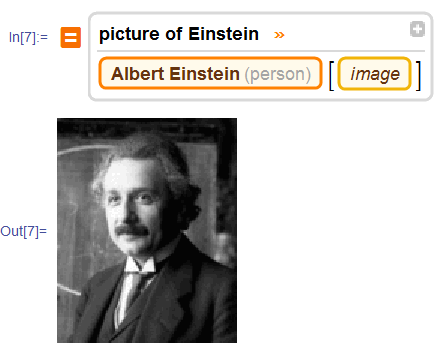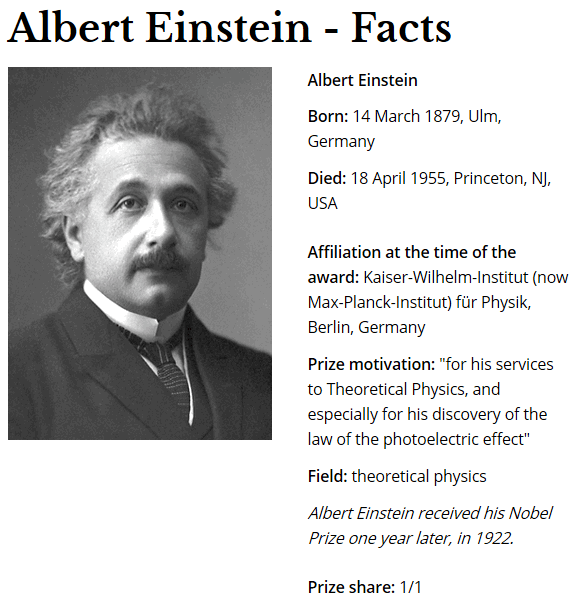I want to make a picture grid of all Nobel Laureates in physics using mathematica. Later I wanna print this picture grid on a big wall!
The first thought I came up with is to exploit the powerful wolfram free format. But I encountered many difficulties.
- image resolution
for example
There is one problem, the resolution(dpi) of the image is quite low. How to get a high dpi image using free format.
- How to get all Nobel Laureates in physics?
I tried "all Nobel Laureates in physics" and "Nobel Laureates in physics from 1901 to 2015" both failed
- I also want the birth and death date of each Nobel Laureates
to sum up I want a list of data like this
{...,{1921,Albert Einstein,"14 March 1879","18 April 1955",image_of_Einstein},....}
With this data list, I can later create a picture grid using Mathematica command, with each image labeled with name and year information
Another possible way
If it is hard to be realized using Wolfram Knowledge. Another possible way, I now think probably better is to grab data from www.nobelprize.org, with full list of all Nobel Laureates in physics, and all essential information of each Nobel Laureates. For example on this page about Einstein. There is even "Prize motivation" which is also what I want.
However, again, using mathematica to grab data on webpage is something I don't know how to do.





